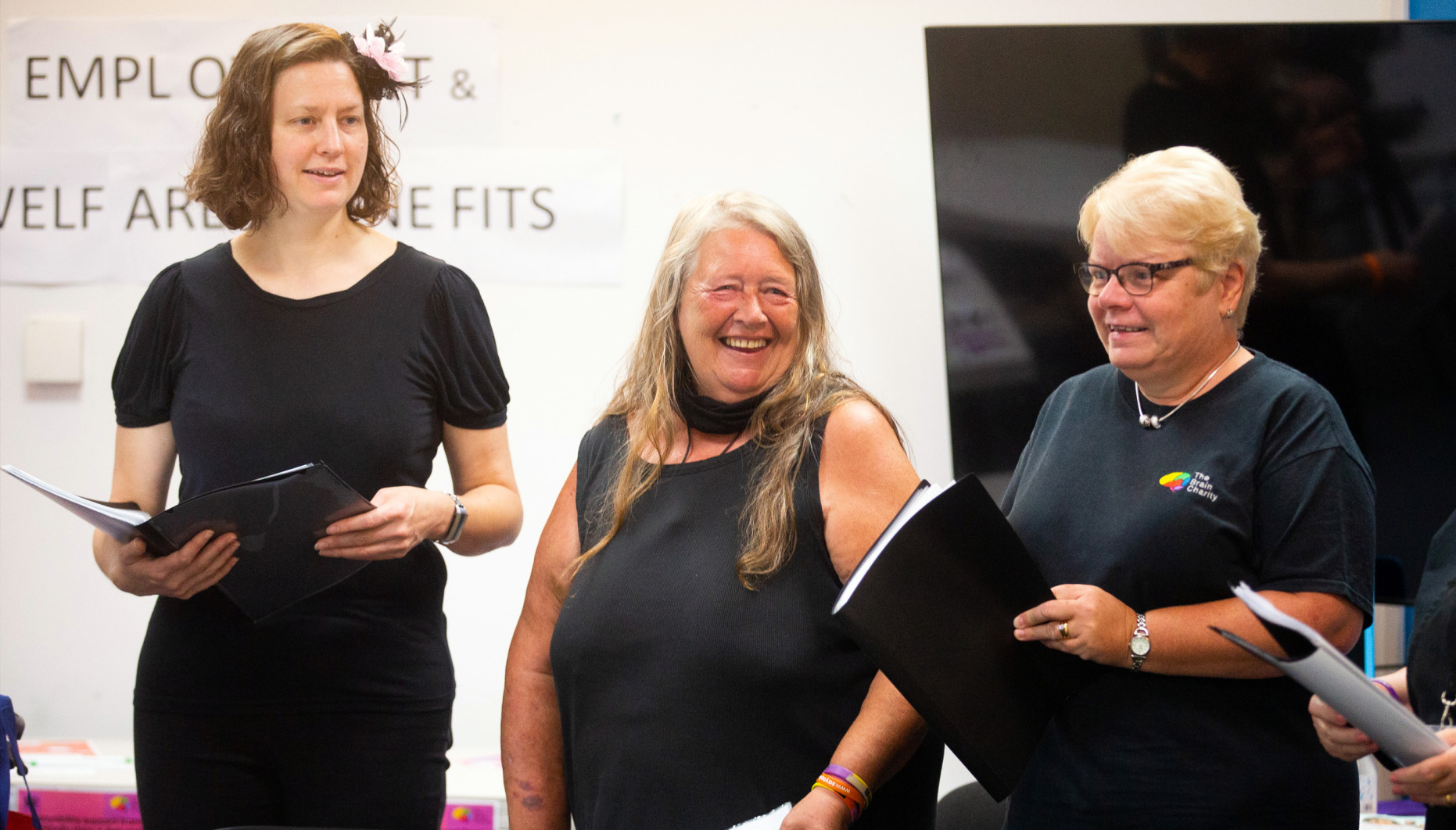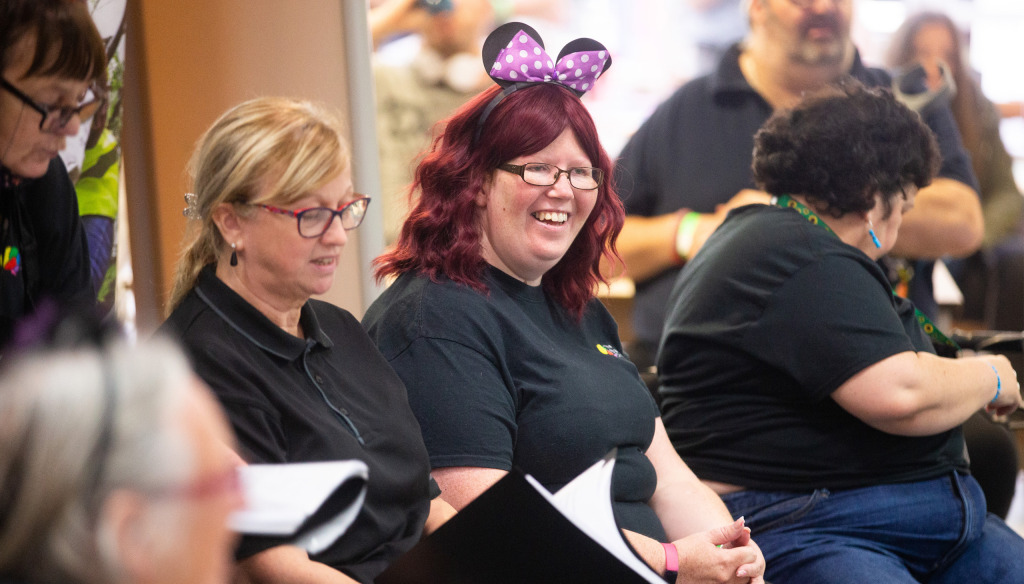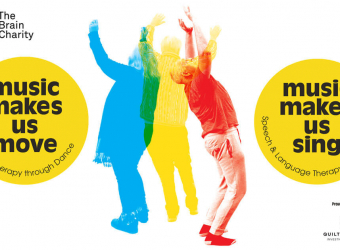
The power of music: how singing benefits the brain
Our choirmaster Grayson outlines the benefits of music for the brain – both physically, mentally and socially
Singing is great for brain health, stimulating multiple areas of the brain at the same time. It can also improve speech and communication if you have a neurological condition.
The Brain Charity’s choir meets weekly for ‘sing and a social’ sessions, with the aim for members to enjoy themselves and socialise while gaining some singing skills under the guidance of our choirmaster Grayson.
In this guest blog, Grayson outlines the benefits of music for the brain – both physically, mentally and socially.
Singing and neuroplasticity
Singing uses all parts of the brain at once. Because you are working certain parts of the brain which don’t get exercised by many other activities, you can rebuild neural pathways when you sing. This is known as neuroplasticity, and helps with memory and speech. For anyone who has had a stroke or brain injury, singing can be a vital part of their recovery – particularly if they have experienced aphasia.
How singing improves breathing and lung capacity
A lot of people with neurological conditions find their symptoms can affect multiple parts of their body. For me, FND affects the way I breathe. The deep breathing and breath-holding required to sing help me with speech control, breath control, tongue movement and respiratory health. Singing can also increase your lung capacity – the more you practice and use your lungs, the stronger and more flexible they become. Singing can also positively impact the tics which can come from some neurological conditions. My tics almost completely disappear when I’m singing.

Song lyrics and memory skills
Remembering song lyrics is a really good way of training the brain. You can also rebuild memories with music. Remembering a song is a feelgood experience and music has been proven to help calm and regulate the emotions of people with dementia and help them have moments of joyful connection.
Music and mood
We all know there’s a perfect song for every mood. But singing, particularly in a group, also boosts the release of endorphins and serotonin – feel-good happy hormones. Performing live also stimulates adrenaline, and singing improves your immune system by reducing the stress hormone cortisol. These hormones have been proven to help with pain regulation and management, a massive boost for chronic conditions.
The social benefits to joining a choir
Alongside these physical benefits, there are clear social positives to joining a choir. Seeing the same people each week and building social connections is extremely valuable for mental health. The main focus of The Brain Charity’s choir is to build a social circle and sing because we enjoy it. The music enhances the friendship – it’s a social group that uses music as its focal point. More than anything else, we sing because it’s fun!
Anyone is welcome to join our choir’s ‘sing and a social’ sessions – whatever your age, gender or vocal ability we’d love to have you involved. We sing songs from all eras and musical styles, and are actively looking for new members.
To register, follow this link or call our reception on 0151 298 2999 and ask for Suzanne.
Categories: Advice, Guest blogs
Published: 9 May 2023














